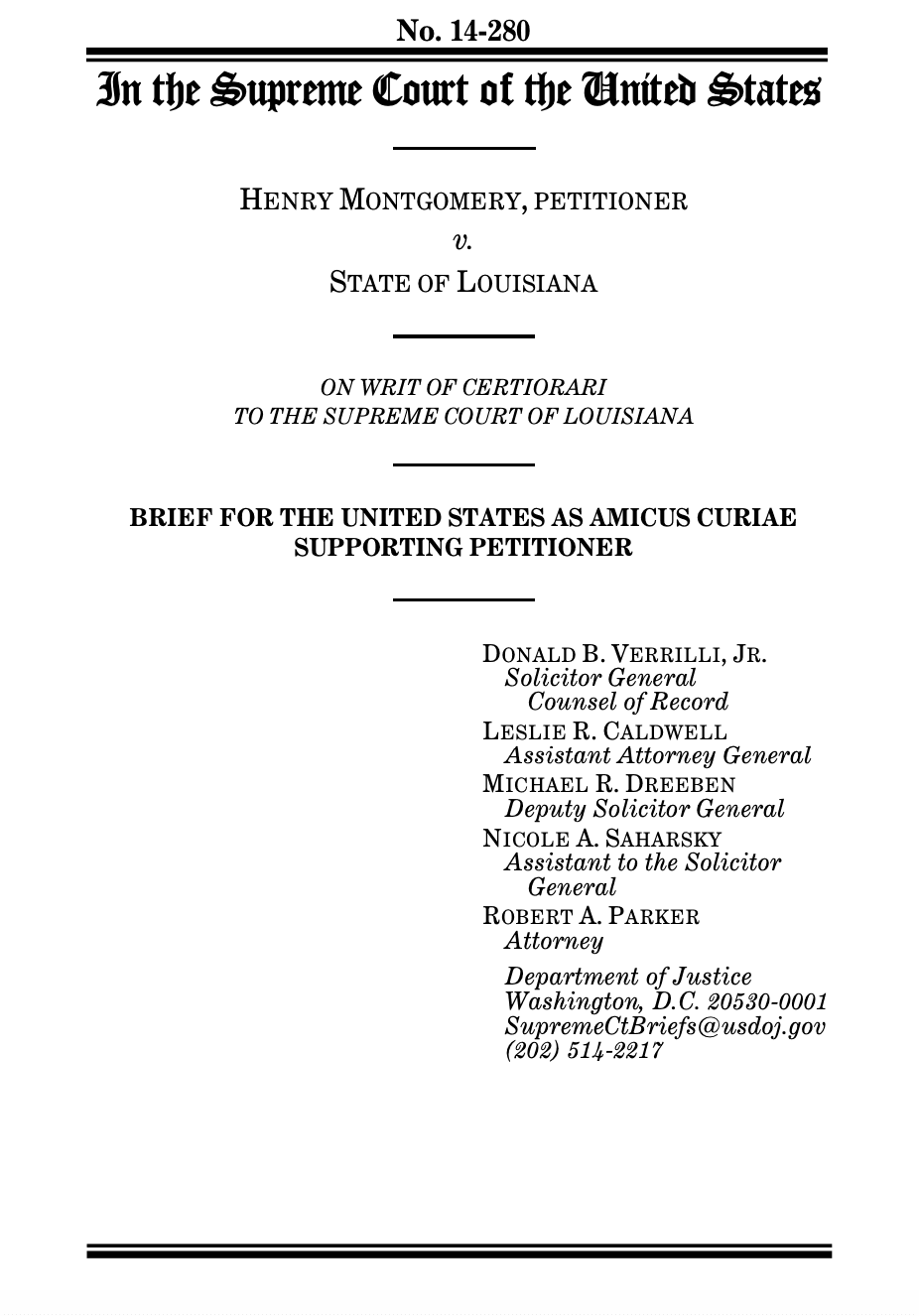
Summary of Argument
No decision of this Court should be construed to provide an escape hatch that would entitle respondent to retroactively invalidate discretionary life-without-parole sentences for his heinous crimes.
In Miller v. Alabama, 567 U.S. 460 (2012), the Court held only that the Eighth Amendment forbids “mandatory” sentences of life without parole for homicides committed by juveniles. Id. at 465. The sentencing schemes at issue in Miller required sentences of life without parole in all cases, irrespective of any age-related factors, and the Court’s reasoning relied on the conjunction of its juvenile-sentencing and individualized-sentencing precedents. The Court expressly limited its holding to mandatory punishments and declined to consider broader rationales that would have applied equally to discretionary sentences.
In Montgomery v. Louisiana, 136 S. Ct. 718 (2016), the Court held that Miller’s rule is retroactive to sentences that became final before that rule was announced. That case, like Miller, involved a defendant who had received a mandatory sentence of life without parole, not a discretionary one. Some of the language in Montgomery, however, did not distinguish between mandatory and discretionary sentences. Accordingly, the government and lower courts have generally (though not invariably) felt constrained to understand Montgomery’s reasoning (though not its actual holding) as requiring the retroactive invalidation of both types of sentences.
This Court, however, is not so constrained, and it should take the opportunity in this case to reemphasize the express limits of Miller. One way to do so is to clarify that Montgomery’s core rationale—that retroactive application of the Miller rule was necessary to eliminate a “substantial risk” of disproportionate sentences, 136 S. Ct. at 736—applies only to mandatory sentences, not discretionary ones. Under Miller, only mandatory sentences, imposed indiscriminately on all juvenile offenders, create the degree and kind of risk that would require retroactive invalidation. Another way is to clarify that Miller’s retroactivity rests on the narrow rationale advocated by the government in Montgomery— namely, that a rule invalidating a mandatory sentencing scheme is retroactive because it alters the range of possible substantive outcomes. Under either approach, the decision below should be vacated and the case remanded so that the lower courts can determine in the first instance whether respondent was sentenced under a mandatory regime of the sort that is covered by Miller.